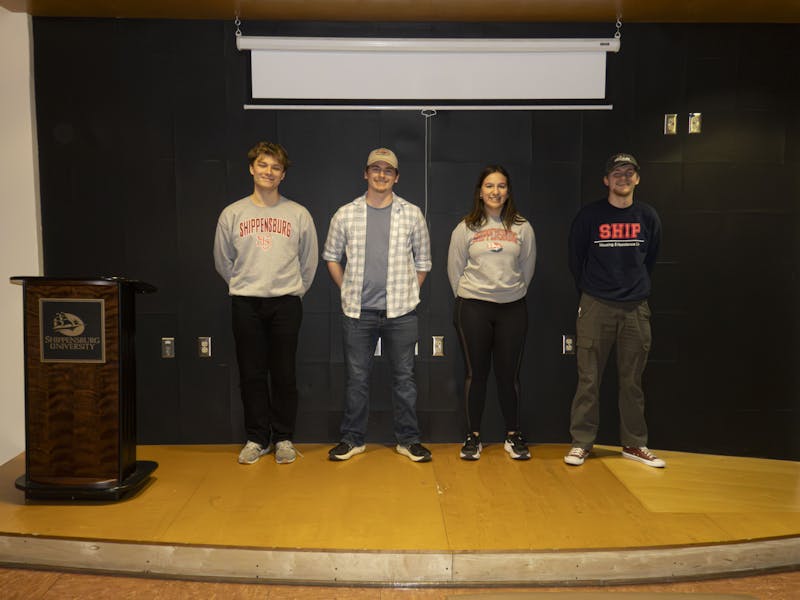Only five miles from Ayn al-Asad military base, a U.S. training site for Iraqi soldiers, militants of the Islamic State group (IS, ISIL or ISIS) captured a town that has been subject to numerous skirmishes, according to The New York Times (NYT).
IS soldiers, numbering in the hundreds, attacked the town al-Baghdadi in two directions, according to Reuters and Fox News. Iraqi forces attempted a counterattack, but eventually retreated by the morning of Feb. 14. The captured town marks the first territorial advance of IS in several months, according to the Pentagon.
Approximately two dozen IS soldiers launched an attack on the local military base, which houses 300 U.S. Marines. John Kirby, a Pentagon spokesman, said some of the attackers detonated bombs in a suicide mission, but Iraqi soldiers killed others.
According to Kirby, U.S. troops did not participate in the attack and no allied soldiers were killed.
"The fact is those 300 Marines are the toughest guys around," Peter King, a Republican representative from New York, said. "But the fact that the ISIS attack today didn't work, doesn't mean that it couldn't work in the future."
"We have been given a warning signal, and we must take action," Tom McInerney, an Air Force Lt. Gen., said.
Last week, President Barack Obama sent lawmakers on Capitol Hill a request for the Authorization of the Use of Military Force (AUMF), which would allow for continued airstrikes and training of Iraqi soldiers, along with the use of ground forces under certain circumstances, according to the Washington Post.
Obama hopes to combat IS with military force, without creating a long drawn-out war, such as the ones started under the previous administration. One way the president plans to do this is to limit the validity of the AUMF to only three years.
"It is not the authorization of another ground war, like Afghanistan or Iraq," Obama said, noting it does permit him the ability to use ground troops for special, isolated operations, such as a rescue mission, and to respond to unpredictable circumstances, including the aid of local Iraqi or U.S. soldiers.
"The delivery of this authorization is the beginning of a legislative process," John Boehner, speaker of the House of Representatives, said, suggesting the president will have to make a case to the American people to earn their support.
A congressional decision is not expected to be reached for perhaps months, as members of each side of the aisle will argue his or her different approaches to best combat IS.
Many Republicans believe the president will need additional authority to properly fight IS, while Democrats tend to be more concerned about Obama having too much military power. The debate is largely over what level of military resources to give the president to fight IS without getting the U.S. entrenched in another prolonged campaign in the Middle East.
"It's a very broad grant of authority,” Chris Van Hollen, a Democratic representative from Maryland, said. Van Hollen believes the AUMF "leaves wide open the possibility of real engagement of U.S. combat forces on the ground in Iraq and Syria."
"The president must articulate and implement a comprehensive strategy that gives our military experts and commanders the agility and authority they need to successfully confront this increasing dangerous and complex threat," Michael Turner, a Republican representative from Ohio, said, noting Obama's request to Congress does not meet those standards.
While lawmakers will spend the coming weeks discussing what the appropriate action to take, IS will undoubtedly continue its campaigns in Iraq and Syria.
"Iraqi civilians are being hammered by ISIS and then by pro-government militias in areas they seize from ISIS," Joe Stork, deputy Middle East and North Africa director of Human Rights Watch (HRW), said, according to HRW. "With the government responding to those they deem terrorists with arbitrary arrests and executions, residents have nowhere to turn for protection."
According to icasualties.org, nearly 7,000 U.S. soldiers died in the wars in Iraq and Afghanistan. Many Americans are concerned about engaging in another conflict in the Middle East at the expense of taxpayers and more lives.
With an international military alliance consisting of more than 60 nations, Obama declared IS will lose.
"Make no mistake, this is a difficult mission, and it will remain difficult for some time," Obama said. "But our coalition is on the offensive. ISIL is on the defensive and ISIL is going to lose."
The real question may not be over which side will win or lose, but rather how long it will take for there to be a conclusion to the war. While Obama hopes to avoid an all-out war, the struggle to defeat an enemy with very real power, with limited resources, is challenging to say the least.
"The supreme art of war is to subdue the enemy without fighting," Sun Tzu, historic Chinese military strategist and author of the "Art of War," said. "There is no instance of a nation benefitting from prolonged warfare."





The Slate welcomes thoughtful discussion on all of our stories, but please keep comments civil and on-topic. Read our full guidelines here.